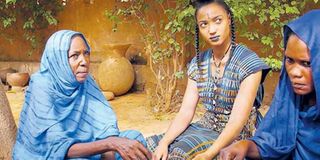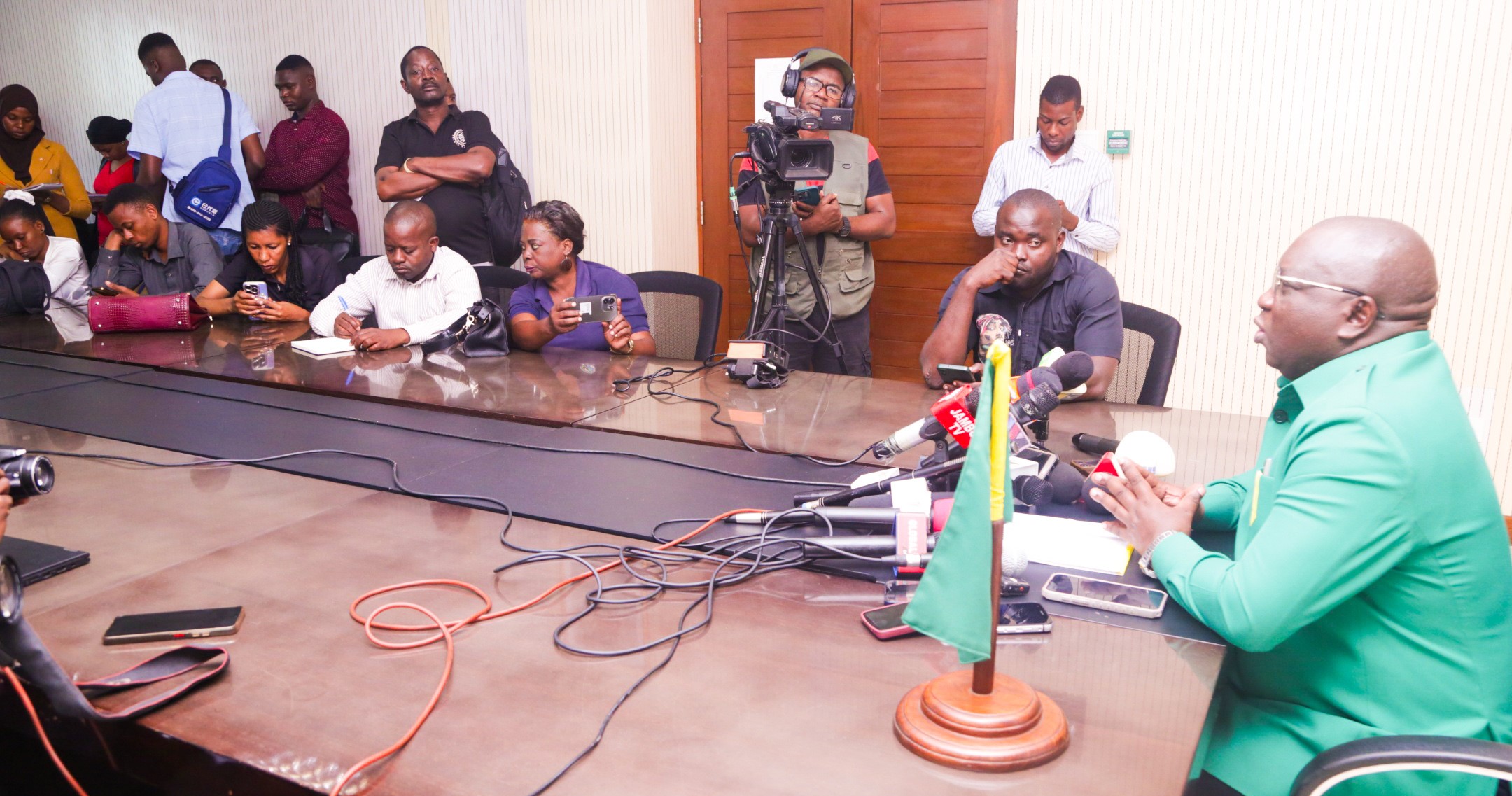Women directors ready to fight for their place

A scene in Rhmatou Keita’s film the Wedding Ring which emerged as one of the best films at ZIFF 2018 PHOTO | FILE
Film making has always had points of contention and one of the much-deliberated issue of gender representation across the cinema isn’t the existence of the woman director.
Certainly, they constitute a small percentage of the filmmaking enterprise but, nevertheless, they are there and they are making all the difference.
Over the years, this failure to progress has often been blamed on a chauvinist culture; and certainly, talking to established directors, it’s easy to uncover tales of overt sexism – from the mildly disconcerting to the downright illegal.
The lack of female film-makers also seems to have made it difficult for studios to imagine women in charge.
Film is big business, filled with financial risk, and so “the whole industry is based on demonstrable success.
Unless something has worked in the past, it’s very rare that people will take a risk as a result there’s a perception that traditionally it’s a man’s role.
It’s true that men have directed the great majority of high-grossing films across the world in both Hollywood and Bollywood over the last decade. But a closer look at the figures reveals that women film-makers aren’t a bigger financial risk.
In 2008, according to the Guardian UK, Lauzen conducted a study called Women at the Box Office, which found that the key to big grosses wasn’t the gender of the film-maker, but the budget. Big budgets equalled big grosses.
“When women and men have similar budgets,” she wrote, “the resulting box office grosses are also similar.”
During the 2018 edition of the Zanzibar International Film Festival a rear spectacle hit the region’s film industry as there were more women going up the podium to pick up awards compared to their male counterparts.
At the festival, the Chairman’s Bi Kidude Award, was awarded to Rahmatou Keita from Niger for her moving and romantic plea for cultural preservation in the ‘The Wedding Ring’.
Rahmatou Keita is a film director whose long feature fiction is about Tiyaa a student and a member of prestigious aristocratic family. She is expecting the young man she met at the university to make a formal proposal of marriage.
She says, her film aims at empowering youths morally and respect the old ways of doing things in a world that is yawning for western values and forms of modernity.
“In making my film it was not easy to deliver a message of respecting African cultures especially on how wedding proposals should be well handled in a today’s society where young people are carried away by so many new ways of handling things,” says Keita.
She says, being a female filmmaker gave her a chance to educate the World as a mother and as a woman and give the World an opportunity to live the life everyone deserves.
In her line of work she has to invest not only money but also time and brain to an extent a one can miss an opportunity to perform some other duties. However, after she has done with one film she takes a break to attend other community duties.
The Emerson Foundation’s Award for Best Film from Zanzibar was also awarded to a woman, Barke Ali, while the SIGNIS East African Talent Award went to Ugandan woman Kemiyondo Coutinho for Kyenvu.
Barke Ali is a former primary school teacher based in Zanzibar who turned to film making and her short film Sisi na Wao is her second effort behind the cameras.
Hers is a tale of how human beings can never be the same and yet they compare themselves to each other.
To her being a female director means to sacrifice your extra time and even your last cent to make sure things fall in the right direction.
And just like many others, funding remains critical to the extent that she has to rely on good will sometimes to produce her films; she believes this is one of the bottlenecks that is pulling women’s legs in the industry.
Esther Mndeme is a young producer and creative director at Profixers Tanzania Limited, a film company, Leah was her second film to direct after the Safari Yangu series which had 18 episodes.
She says, soon after she completed her bachelor’s degree in fine and performing arts Safai Yangu was her first project but the film remains on the shelves because there is no television station is ready to show her film.
“Film making is very expensive. Yes, we do it aiming at educating others but in the process we also need to make money out of it. However, it is not possible to get a television or sponsor who is ready to pay for the airtime,” says Esther.
Adding to that she says, TVE agreed to show four episodes of ‘Safari Yangu’ as a way of looking for sponsors, however, none showed up and decided to stop showing it as it was not making money regardless several requests from the viewers.
According to her she spent over Sh50 million on Leah and that is because some people supported her without payments.
Recouping such funding is usually difficult in a market like Tanzania where distribution and market structures are barely there.
But even then ‘films for change’ are another way of educating a society instead of making senseless noise about a particular problem.
The idea of cinema for change is opposed to the traditional Bongo movies style which was designed to replicate what was happening in Nollywood and the West.
The problems facing female directors are structural and systemic, a tangled mix of sexism, cultural differences between men and women, and maternity issues; in this, they mirror the problems affecting many women in male-dominated workplaces. But the film industry magnifies all this.
According to observers when the stakes are high, when fame and extreme amounts of money and power are involved, it’s a jungle out there and it’s brutal.
But at the end of the day it goes down to how hard one is ready to fight for what they believe is rightly theirs.
But just as it was exhibited at the Zanzibar International Film Festival, many women are -prepared to fight.




